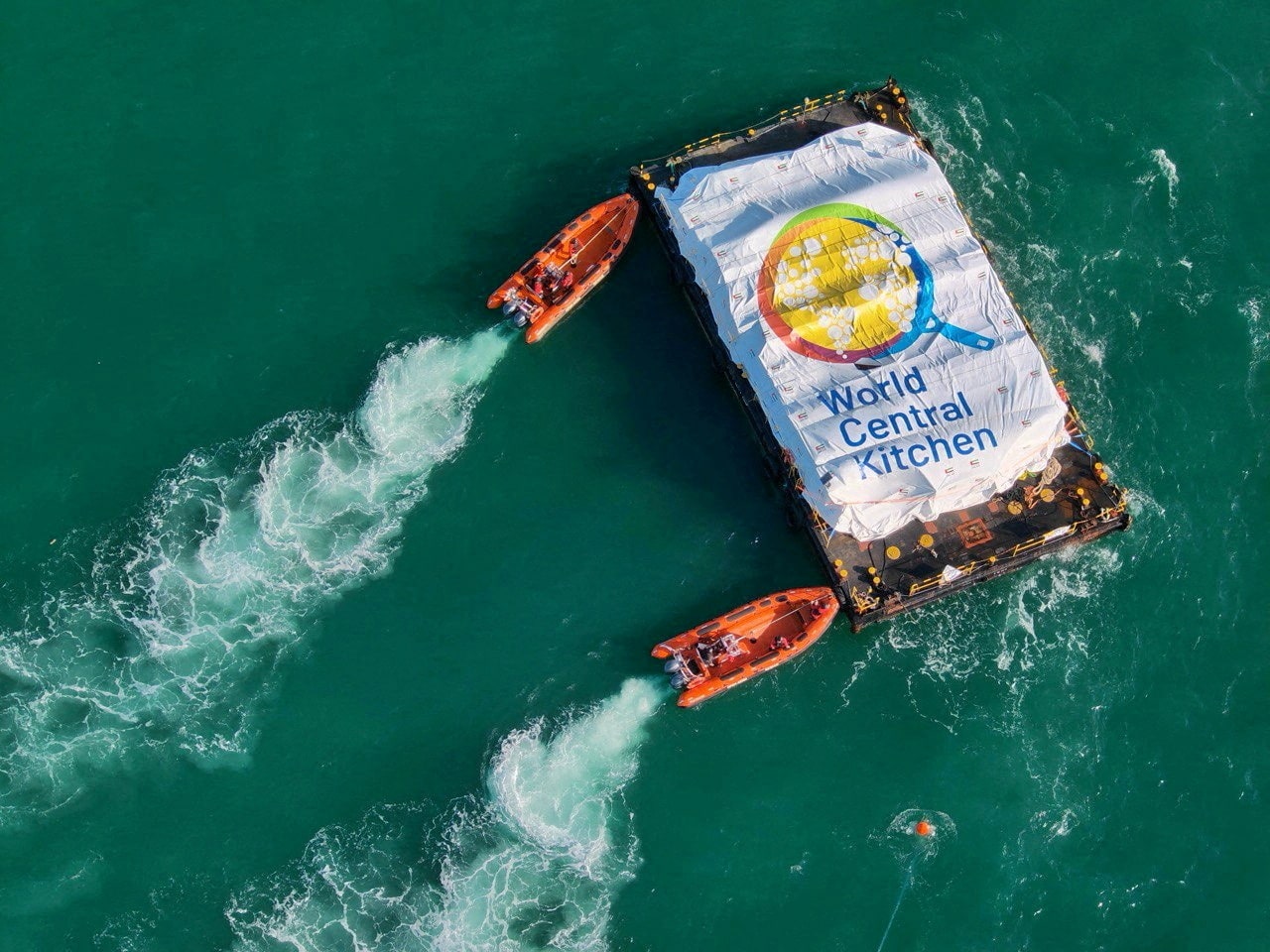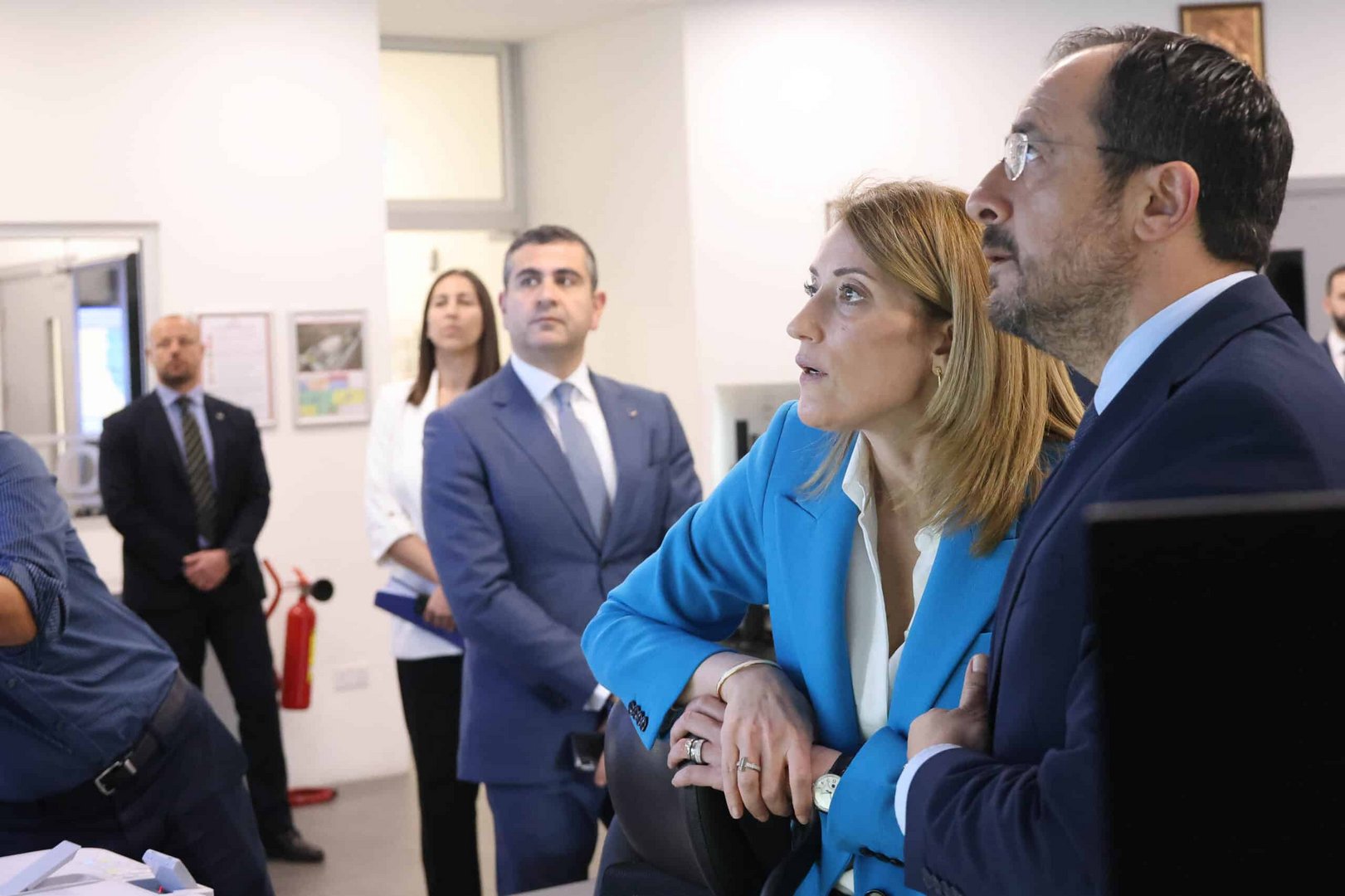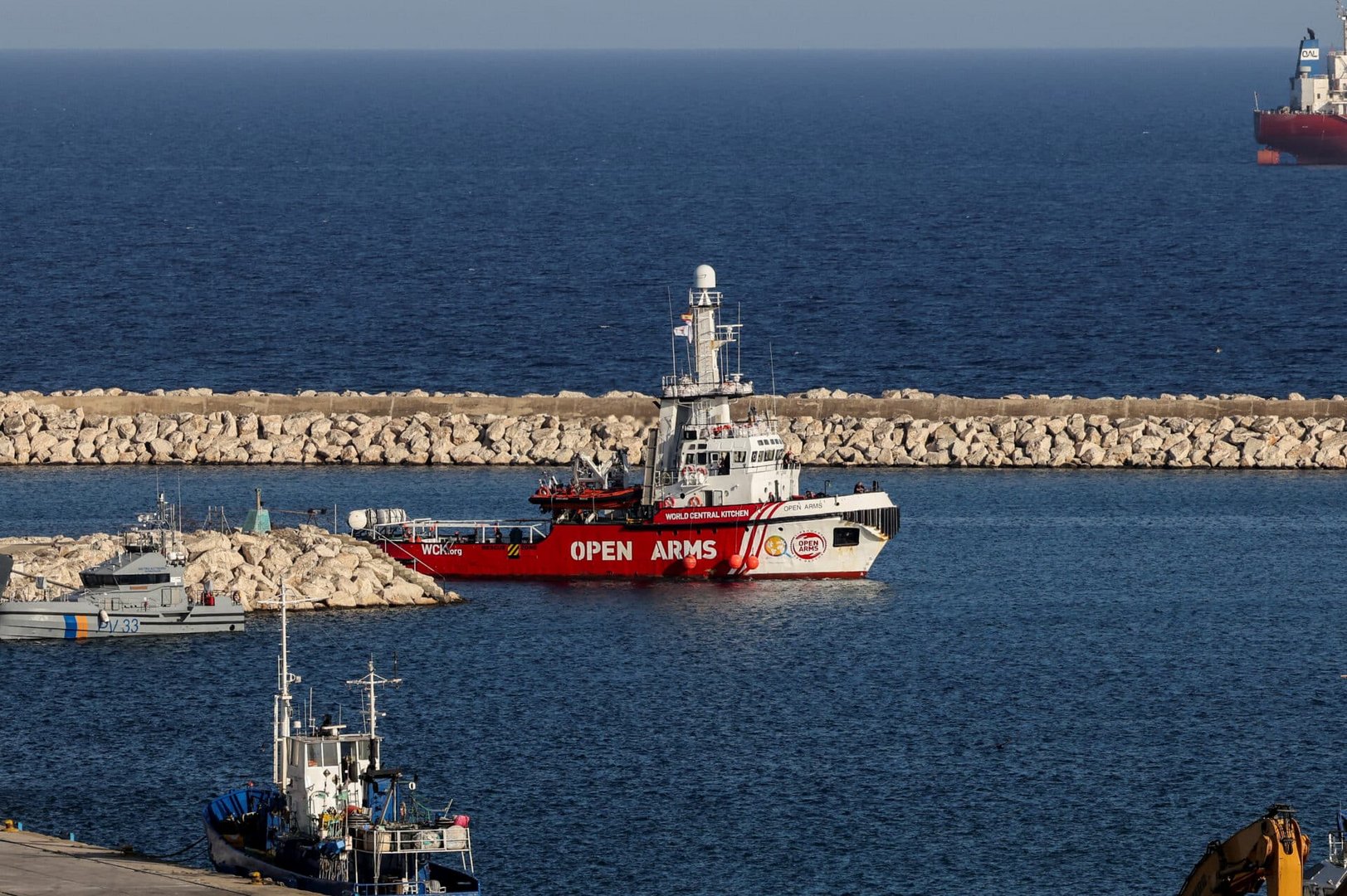After seven aid workers were killed in Gaza by Israeli air strikes, Tom Cleaver examines the state and the future of Cyprus’ humanitarian aid corridor
It was supposed to be Cyprus’ major contribution to alleviate the suffering of Palestinians as much of the world looked on in horror.
A humanitarian aid corridor linking the island to Gaza, a strip of land once referred to as “an open-air prison” by British Foreign Secretary David Cameron, had been proposed by Cyprus soon after Israel had begun its latest offensive, in the wake of the Hamas terrorist attacks on Israel on October 7.
Cyprus’ public-facing diplomacy went into overdrive, with President Nikos Christodoulides leading the charge, telling the European Union and the world of how the Republic was ready to help and how it was perfectly placed to do so.
Cyprus, he said, has “excellent relations with all neighbouring states”, and as the closest European Union member state to the scene of the ongoing crisis, is a “pillar of stability in the region”.
So it proved, eventually, and at first. The first aid ship in the corridor, now dubbed the “Amalthea” plan after the Greek goddess who is often depicted as the goat which suckled the infant Zeus, departed from Larnaca on March 12 with 200 tonnes of aid on board.
The ship, named Open Arms, arrived four days later, and the United Arab Emirates aid was distributed by American charity World Central Kitchen (WCK). The charity’s founder and Michelin-starred chef Jose Andres said at the time that the ship’s arrival was evidence of “the power of heart, humanitarianism and action”.
Improving weather and visible success of the plan then allowed for three ships, the Open Arms, the Jennifer, and the Ledra Dynamic, alongside the floating platform the Ares to facilitate the aid’s arrival, to all set sail at once just over a week ago.
Plans were also afoot for a jetty to be constructed to facilitate more easily the bringing of aid onshore in Gaza.
A total of 330 tonnes of aid were on board, and more was surely set to follow. European Parliament president Roberta Metsola arrived on Monday night, keen to see the work being done in Larnaca as the humanitarian aid corridor grew and thrived.
But on the same night the corridor came crashing down with an almighty thud when seven aid workers transporting over land the goods which had been sent from Cyprus were killed in three simultaneous Israeli airstrikes.
By the time Christodoulides and Metsola arrived at the joint rescue and coordination centre (JRCC) on the edge of Larnaca airport on Tuesday, the former said it had been a “sad day” and the latter was insisting that “humanitarian organisations must be protected.”
Foreign Minister Constantinos Kombos said on the same day that “questions will now need to be answered by the Israelis.”
The ships returned to the island with 240 tonnes of aid still unloaded, while both WCK and Open Arms said they were suspending operations.
The complexion of this article was also changed by Monday night’s disaster. My initial plan had been to visit the Larnaca port on Wednesday morning to witness the hive of activity and work going on into making Cyprus’ ambitious Amalthea plan possible. Instead, I was greeted with a ghost town.
An eerie silence had descended upon the port by the time I arrived, with barely a single person visibly there.
I was not completely alone at the port, however, with the good weather which allowed hundreds of tonnes of humanitarian aid to sail from Cyprus to Gaza also allowing for hundreds of people seeking asylum to sail in the opposite direction from further north on the Levantine coast, some of whom landed safely in Larnaca.
Asylum seekers aside, the only people there were private security and police, and there was no real visible evidence that any humanitarian aid corridor existed or had ever existed. What was before me was a largely empty port with a very small number of comings and goings and one ship having sand unloaded from it.
It had been widely reported that Israel had been granted access to at least part of the port, and that Israeli personnel had landed at the port and effectively taken over part of its running.
I asked a representative of the port whether there was (still) an Israeli presence at the port and was told “I can’t tell you”.
This response was largely applicable to most of my line of questioning, with those at the port unwilling, or possibly unable, to give any information away.
The most pertinent question on my lips which could not be answered at the port was whether without WCK, the humanitarian aid corridor was still viable, or even possible.
Christodoulides had described WCK as a “crucial partner”, and that is no exaggeration. WCK have both the requisite trust and experience in the field to be able to carry out such a mission, an organisation which would tick both of those boxes in a situation such as that in Gaza.
A clear message was sent and received on Monday night that no one in Gaza, not even aid workers from supposed allied third countries, will be spared Israel’s wrath. In those circumstances, how could WCK go back and resume its operations as normal? And if they would not, which reputable organisation would?
When I travelled to Larnaca airport later on Wednesday morning and asked a representative of the JRCC – which oversees the reception and preparation of the aid – that very same question, the answer I received was that they had been given no instructions to halt their operations for the Amalthea plan.
Their task, the representative said, was to continue to receive aid and prepare it to be shipped on to Gaza. As far as they were concerned, the plan was very much still alive, and the JRCC building itself, while not exactly buzzing with activity, was clearly made up of moving parts and people working towards a goal.
Deputy government spokesman Yiannis Antoniou told the Sunday Mail the government had not made contact with any other charity than the WCK regarding the Amalthea plan, and that no alternative plans had been made. This may suggest that all the Amalthea plan’s eggs were placed in the WCK basket.
The non-governmental organisations involved were incandescent about the attack, with WCK’s Jose Andres telling Reuters the Israeli Defence Force had targeted his aid workers “systematically, car by car”.
“This was not just a bad luck situation where ‘oops’ we dropped the bomb in the wrong place,” Andres said.
Oscar Camps of NGO Open Arms, which supplied the ship which went by the same name, said Gaza is a “dystopian laboratory where people’s blood flows while war technologies are tested and perfected, directed by increasingly automated algorithms that allow all human responsibility to be diluted, using technology and trivialising evil.
“How much more humanity must be lost in this genocide?” he asked.
In any case, while it is far too early yet to say the Amalthea plan is in tatters, its future is very much uncertain, and with that Cyprus’ arrival onto the main stage of geopolitics may be at the very least delayed.
Such an eventuality became ever more likely on Friday, as Israel acquiesced at the United States’ behest to open the Ashdod port and the Erez crossing point at Gaza’s northern edge for aid to arrive.
With ships now able to sail directly to Israel and then have their aid transported over land to the nearest crossing point, the Amalthea plan may be obsolete.
It may in time take another form, but the idea of sending aid to Cyprus to be shipped onwards to a port-less Gaza when there is a perfectly serviceable port up the road in Ashdod is simply inconvenient for would-be aid distributors.
Truth be told, this is really no fault of Cyprus’. While criticism was levied earlier on of the government’s hands-off stance as regards taking a position on goings on in Gaza, it must be noted that the aforementioned “excellent relations with all neighbouring states” was absolutely a prerequisite for Cyprus to be able to start sending ships laden with aid in Gaza’s direction.
There would have been no humanitarian aid corridor at all, not even a short-lived one, if Cyprus’ first act after the outbreak of violence would have been to take a stick to the wasps’ nest which is the Israeli government, and Cyprus alone hardly carries the geopolitical weight required to affect any policy shift on Israel’s part.
What was done, in hindsight, was the best possible course of action Cyprus could have taken given the circumstances, and the only possible course of action which would have led to any humanitarian aid at all from Cyprus reaching Gaza.
Whether or not the Amalthea plan can be resurrected is another matter altogether, and as hours pass by and alternative arrangements are made, the likelihood of a return to Cyprus being front and centre in the charge of aid to Gaza become ever slimmer.
Cyprus’ graduation onto the world stage may have to wait for now, and it remains to be seen how the government can react to it. The Amalthea plan has for six months been the driving force behind Cypriot diplomacy – the Christodoulides government’s first serious diplomatic raison d’être and point of relevance outside of this island’s own intercommunal issues.
In a future without it, Cyprus cannot ignore Gaza, and its current government does not seem like the sort to happily shrink back into the background. In a rapidly changing global diplomatic picture, Cyprus’ time may yet come again, and despite its eventual ending in disaster in Gaza, the Amalthea plan has done Cyprus no harm.











Click here to change your cookie preferences